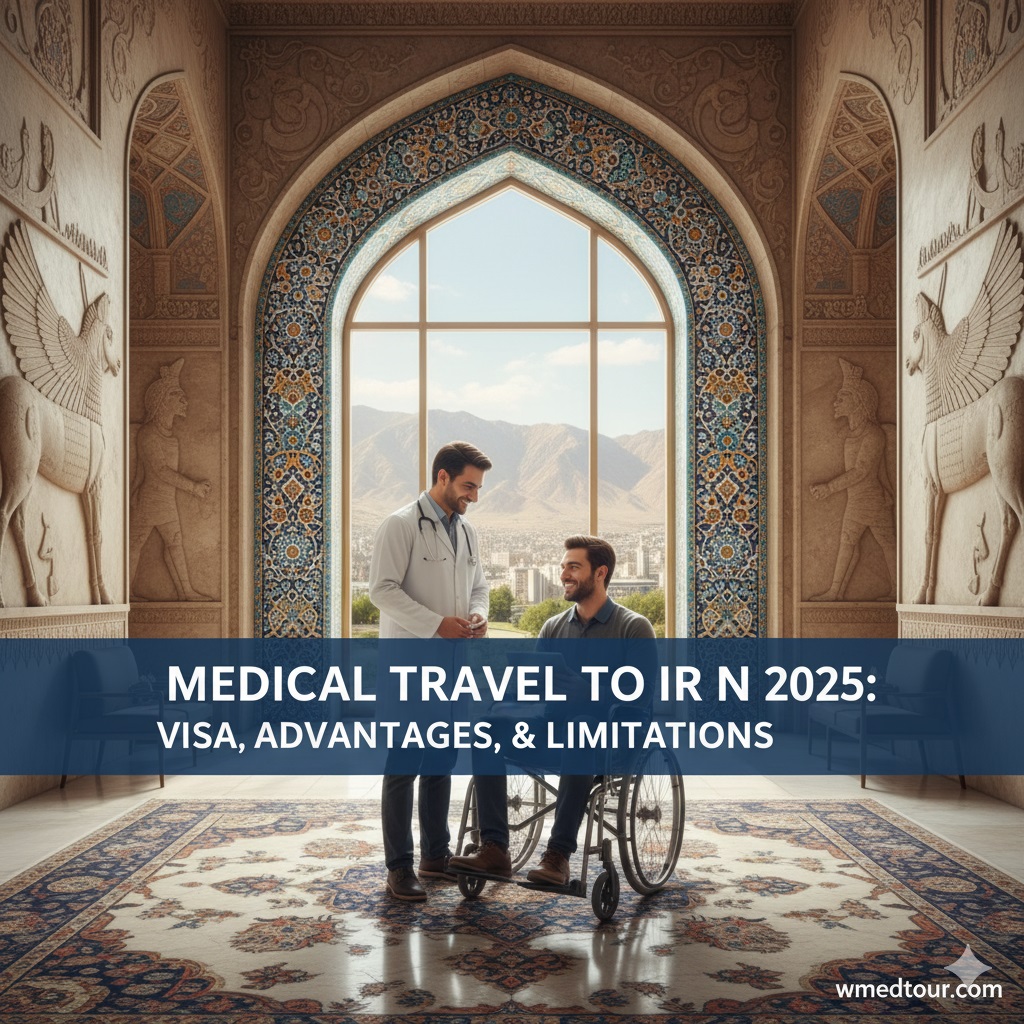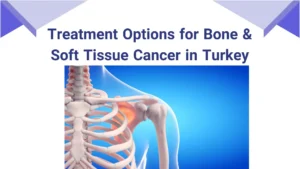Medical Travel to Iran 2025: Limitations, Advantages, Visa & Planning Guide
Your ultimate authoritative resource for planning healthcare procedures in Iran.
Executive Summary: Key Takeaways
Iran has firmly established itself as a global medical tourism hub, primarily due to its combination of **highly skilled surgeons** and **exceptionally low costs**. This guide confirms that in **Medical Travel to Iran 2025**, patients continue to benefit from state-of-the-art treatments—especially in **Cosmetic Surgery, Fertility, and Cardiology**—often saving 50% to 80% compared to Western nations. The main challenges remain logistical: obtaining the specific **Medical Visa**, navigating geopolitical concerns, and ensuring post-operative support. For a seamless journey, expert coordination is crucial. Moreover, specific countries, particularly the United States, Canada, and the UK, face unique visa requirements or travel advisories that must be addressed proactively, making planning essential.
1. The Driving Force: Cost and Quality in Medical Travel to Iran 2025
The fundamental appeal of Iran lies in a powerful paradox: **high-quality medical care at surprisingly affordable prices**. This trend is not new, but it is strengthening in **Medical Travel to Iran 2025**, as the government continues to invest in modernizing infrastructure and training specialized personnel. Consequently, you can access cutting-edge procedures without the crippling financial burden common elsewhere. This economic factor is a massive draw for individuals seeking cost-effective solutions for significant health needs.
1.1. Advantages: Why Choose Iran?
Unbeatable Cost Savings
Iran offers the most competitive prices globally for procedures like **cosmetic surgery** (e.g., rhinoplasty) and complex surgeries like open-heart or orthopedics. This huge saving means complex treatments become accessible. Interested in general pricing? Check out our global medical tourism guide.
Highly Trained Specialists
Many Iranian surgeons receive training in Europe and North America. They maintain exceptionally high clinical volumes, particularly in areas like cardiac surgery and oncology, leading to refined expertise and often better outcomes. This high volume of practice is a strong indicator of surgical skill.
Advanced Medical Technology
Major private hospitals in cities like Tehran and Mashhad feature modern equipment, rivaling Western facilities. They offer advanced procedures, including specialized cancer treatments and advanced diagnostics. Additionally, you can find centers with the latest imaging and robotic systems.
Cultural and Logistical Support
Unlike some other destinations, Iran has well-developed medical tourism agencies that provide comprehensive support, covering accommodation, translation, and transportation. They manage the complex logistics, enabling patients to focus entirely on recovery.
1.2. Limitations: What to Consider
Geopolitical and Travel Restrictions
The primary limitation is often related to international relations. Travel advisories from Western governments can be concerning, and direct flights from some countries are limited. Therefore, patients must thoroughly research and prepare their travel route.
Banking and Sanction Issues
International credit cards and banking services do not work in Iran. Consequently, patients must carry cash (USD or Euro) and use local exchange services, which requires careful planning and security awareness. This is a critical logistical hurdle that often surprises newcomers.
Language Barrier
While medical staff are often multilingual, Farsi remains the primary language. Thus, relying on a professional medical tourism facilitator is essential to guarantee accurate communication with physicians and hospital staff. Miscommunication risks patient safety and satisfaction.
Post-Operative Follow-up
After returning home, seamless remote follow-up can be challenging due to time zones and connectivity issues. Patients must confirm a clear plan with their chosen doctor or a facilitating company before they leave the country. Furthermore, they should explore our pre-travel resources and checklists.
2. The Critical Visa Requirement: Who Needs What?
Securing the correct visa is arguably the most crucial step for **Medical Travel to Iran 2025**. Most medical tourists need an **Iran Health Visa (Type C1)**, which is specifically issued for medical treatment. However, the process, and whether you need a visa at all, varies significantly by nationality. Consequently, checking the official Iranian medical travel regulations is paramount.
2.1. Countries with Visa-Free Entry or Visa on Arrival (VOA)
Many neighboring and friendly nations enjoy relaxed entry rules. For example, citizens of **Turkey, Syria, Georgia, Armenia, and Azerbaijan** often benefit from visa-free arrangements for specific periods. Similarly, citizens from around 70 countries can obtain a VOA at major international airports, but only if they are traveling for standard tourism. However, since you are engaging in medical travel, applying for the specific **Health Visa** beforehand is always the safest and most recommended approach, even for VOA-eligible citizens, to avoid complications upon arrival.
2.2. Countries Requiring a Visa in Advance (Mandatory)
Citizens of countries like **India**, many nations in **Southeast Asia**, and much of **Africa** require a visa in advance. The process generally involves applying through an accredited travel agency or the hospital itself, who will secure an **Authorization Code** from the Ministry of Foreign Affairs (MFA). This code significantly speeds up the visa issuance at the embassy or consulate in your home country.
2.3. Special Visa Cases: US, UK, and Canadian Citizens
Citizens holding passports from the **United States, United Kingdom, and Canada** face the strictest regulations. They cannot travel independently and must apply for a visa in advance. Crucially, they must be accompanied by a government-approved escort or tour guide for the entire duration of their stay. This requirement applies even for medical tourists and demands meticulous planning by a specialist medical tourism coordinator. For any complex surgical procedure, such as major orthopedic surgery, these regulations must be factored into the total duration and cost of the trip.
3. Top Treatments Driving Medical Travel to Iran 2025
While Iran offers comprehensive healthcare, certain specialties draw international patients more than others due to established expertise and global reputation. Therefore, these areas represent the strongest sectors for **Medical Travel to Iran 2025**.
3.1. Aesthetic and Plastic Surgery
Iran has earned the moniker “the capital of rhinoplasty” globally. Beyond nose jobs, patients frequently seek breast augmentation, liposuction, and advanced hair restoration, including FUE hair transplant procedures. Surgeons in Tehran and Mashhad are world-renowned, and the cost difference compared to Turkey or Dubai is significant. This expertise is continually verified by international journals.
(Source 1: University Research on Cosmetic Surgery Volume)
3.2. Fertility Treatments (IVF and Related Procedures)
Iran is a regional pioneer in reproductive medicine. It boasts high IVF success rates at costs dramatically lower than the US or Europe. Many centers offer specialized services like PGT (Preimplantation Genetic Testing) and advanced diagnostics. If you are considering IVF medical tourism, Iran offers excellent value and ethical standards compliant with religious laws, which often attracts patients from the Middle East and Central Asia.
(Source 2: Academic Review of Regional IVF Outcomes)
3.3. Complex and Specialized Surgeries
Beyond the obvious, Iran excels in complex areas. This includes urological procedures, particularly kidney and bladder surgery, and advanced cardiac interventions. Hospitals, especially in Tehran and Mashhad (check our tour packages), are equipped for major transplants and neurosurgery. Furthermore, the dedication to specialties like oncology has positioned Iran as a key player.
(Source 3: International Neurosurgical Training Programs)
3.4. Comparison: Iran vs. Turkey (Rhinoplasty Focus)
Many patients compare Iran to Turkey. While Turkey offers ease of travel and a broader Western aesthetic, Iran often provides lower costs and a deeper traditional focus on certain procedures like rhinoplasty. A detailed breakdown can be found in our Iran vs. Turkey Rhinoplasty Cost Comparison.
| Feature | Iran | Turkey (Related Guide) | India (Related Guide) |
|---|---|---|---|
| Cost Level (Average) | Lowest (50-80% Savings) | Low (40-70% Savings) | Very Low (Similar to Iran) |
| Visa Difficulty | Moderate to High (Special Health Visa Required) | Low (VOA or E-Visa widely available) | Moderate (E-Visa required) |
| Top Specializations | Rhinoplasty, Infertility, Kidney Transplants | Hair Transplants, Bariatric Surgery, Aesthetics | Oncology, Cardiology, Organ Transplants |
| Cultural & Logistical Ease | Moderate (Requires Local Facilitator) | High (Westernized Facilities) | Moderate (Language, Infrastructure Variability) |
This table highlights that while Iran offers the lowest costs, patients must prioritize visa logistics and the need for a local medical tourism agency.
4. Patient Journey Example: The Cardiac Patient
Case Study: Ahmed from Oman seeking CABG surgery.
Ahmed, a 55-year-old Omani national, needed Coronary Artery Bypass Grafting (CABG). The procedure in Oman was quoted at \$35,000, and the waiting list was 6 months. Ahmed opted for **Medical Travel to Iran 2025** after consulting with Wmedtour.
- Pre-Travel: Because Oman is a friendly nation, the Health Visa application process was streamlined. Ahmed’s medical records were translated, and an appointment with a top cardiac surgeon was secured in Mashhad. Total planned cost: **\$12,000** (including flights and accommodation).
- Treatment: Ahmed arrived and was admitted to a highly specialized hospital. The cardiac team, experienced in complex CABG procedures, performed the surgery successfully. The hospital stay was comfortable, featuring dedicated medical interpreters.
- Recovery & Return: After a 7-day hospital stay and another week of recovery near his hospital (arranged via a medical tourism package), Ahmed returned home. The total cost was indeed within the \$12,500 range, representing a saving of over 60%. His seamless experience was largely attributed to the dedicated local support and the high standards of the Iranian facility.
This example demonstrates the typical profile of a successful medical tourist in Iran—seeking specialized, expensive care with significant cost reduction and facilitated logistics.
5. Essential Knowledge Before Coming to Iran
Preparation prevents poor performance, especially when navigating a new healthcare system in a different cultural environment. Before finalizing your plans for **Medical Travel to Iran 2025**, you must know these crucial factors.
5.1. Financial Logistics: Cash is King
Due to international sanctions, Western debit or credit cards (Visa, MasterCard) are completely useless in Iran. You must bring enough physical cash (preferably US Dollars or Euros) to cover all medical and travel expenses. Reputable medical tourism agencies, like Wmedtour, can arrange safe exchange upon arrival. Failure to bring sufficient cash is the most common pitfall for international patients.
(Source 4: NGO Report on Banking Hurdles for Health)
5.2. Safety and Security Perception vs. Reality
While media coverage can paint a worrying picture, major Iranian cities are generally safe for travelers. Street crime is low, and the Iranian people are famously hospitable to foreign guests. However, always exercise caution, especially in crowded areas, and remain aware of local laws and customs. The primary concern is not general safety but rather adherence to strict local dress codes and social conduct, especially for women.
(Source 5: Academic Security Risk Assessment)
5.3. Vetting Your Clinic and Surgeon
The quality gap between top-tier private hospitals (which cater to international patients) and smaller public clinics can be vast. Therefore, always choose internationally accredited hospitals with verifiable credentials. Use a checklist like our Guide to Choosing a Surgeon Abroad to verify the specialist’s experience, particularly if you are undergoing complex procedures like in the Gynecological Surgery Department.
(Source 6: Health Policy Research on Accreditation)
5.4. Understanding Local Ethics and Regulations
Iran has unique legal and ethical frameworks, especially concerning controversial procedures like organ donation and gender confirmation surgery. While regulations exist to protect patients, understanding the local context is vital. For instance, Iranian law permits commercial kidney donation to Iranian citizens (but not foreigners), which fuels its transplant expertise. This specialization means experts in the Urological Surgery Department are highly practiced.
(Source 7: Academic Journal of Medical Bioethics)
6. Who is Medical Travel to Iran 2025 For?
**Medical Travel to Iran 2025** is not a solution for everyone, but it is an ideal choice for several specific patient profiles:
- The Cost-Conscious Patient: Individuals requiring major elective surgery, such as extensive cosmetic work (plastic surgery) or hip/knee replacement, where the savings can exceed tens of thousands of dollars.
- The Seeking-Fertility Patient: Couples seeking advanced fertility treatments (IVF, ICSI) who prioritize high success rates and ethical medical practice over proximity.
- The Cosmetic Traveler: People specifically looking for highly specialized aesthetic procedures, particularly rhinoplasty, where Iranian surgeons are world leaders.
- The Regional Neighbor: Patients from nearby countries in the Middle East and Central Asia who share cultural ties and seek quality care without the language barriers found in many Western or Far Eastern medical hubs.
- The Patient with Urgent Need: Those facing prohibitive waiting lists for crucial elective surgery in their home country, who can arrange rapid treatment through Iran’s competitive private healthcare sector.
Ultimately, if you are comfortable with an organized approach, rely on professional facilitators, and prioritize savings, Iran offers exceptional value in **Medical Travel to Iran 2025**.
7. Frequently Asked Questions (FAQ)
Here are detailed answers to the most common questions our patients ask before embarking on **Medical Travel to Iran 2025** from our FAQ portal.
1. How long does the Health Visa application take?
The most time-consuming step is securing the Authorization Code from the MFA, which typically takes between 7 to 14 business days once your documents are submitted. After you receive the code, the actual visa issuance at the Iranian embassy usually takes only 2 to 5 days. Starting the process at least 4 weeks before your intended travel date is highly advised to avoid rush charges and stress.
2. Are the hospitals in Iran internationally accredited?
Many of the private hospitals specializing in medical tourism hold Iranian national accreditation to the highest standards. While fewer hold Western accreditations like JCI (Joint Commission International) compared to Turkey, their standards for cleanliness, technology, and surgical outcomes in key areas are often monitored and confirmed by their international patient flow and high surgical volume. Always check the specific hospital’s credentials.
3. What should I do if I need an emergency transfer?
It is mandatory to purchase comprehensive medical travel insurance that specifically covers medical emergencies and repatriation before you travel. In an emergency, your medical tourism facilitator or the hospital’s International Patient Department will coordinate with your insurance provider and the nearest emergency service. For high-risk patients, arranging an immediate contact plan with an Advanced Life Support (ALS) service may be necessary.
4. Can I communicate with my surgeon directly without a translator?
Many senior surgeons, especially those trained internationally, speak excellent English. However, to guarantee medical accuracy and understanding of complex consent forms, always rely on the professional medical interpreter provided by your facilitator for all critical discussions. Do not rely solely on conversational English or simple translation apps for medical dialogue.
5. What are the rules regarding dress code in Iran?
All women, including tourists, must cover their hair with a scarf (hijab or shawl) and wear loose-fitting clothing that covers their arms and legs (a modest coat or long tunic). Men should avoid shorts. This is a legal requirement that applies in all public places and must be respected by medical tourists throughout their stay, including while traveling to and from the hospital.
6. Can I combine my medical treatment with tourism?
Absolutely, and this is highly encouraged. After the initial post-operative recovery period, many patients extend their stay for a few days to visit historical sites in cities like Isfahan or Shiraz. Your medical tourism package (check out our Mashhad tour package) often includes short cultural excursions tailored to your recovery mobility.
7. Are medical supplies and medicines (e.g., pain killers) readily available?
Top-tier hospitals catering to international patients maintain excellent stocks of necessary medical supplies. However, certain specialized medications might be difficult to source locally due to sanctions. Always bring an adequate supply of your personal, non-hospital-related maintenance medications, and ensure you have a detailed prescription for any post-operative drugs you will need.
8. What kind of documentation do I need to bring?
You must bring your valid passport, the issued Health Visa, all relevant medical reports (translated into English or Farsi if possible), confirmation letters from the hospital and surgeon, and proof of travel insurance. Also, having a few passport-sized photos and a copy of your flight itinerary is always useful. Our pre-travel checklist details this thoroughly.
9. How does pricing work for complex procedures? Is the quote final?
Initial quotes are typically comprehensive and cover surgeon fees, anesthesia, hospital stay, and basic medication. However, if unforeseen complications arise, requiring extended ICU stay or additional procedures, the final cost will increase. Always clarify what is included in the initial quote and set aside a contingency fund of at least 15-20% for unexpected expenses.
10. Are there specific medical specialties where Iran should be avoided?
Iran generally excels across all major surgical disciplines, but if you require highly experimental treatments or procedures that are not globally standardized—such as certain niche cell therapies or complex genetic therapies—it is best to consult with specialists in Europe or the US, as the approval process for new technologies may be slower in Iran. For instance, advanced TCR-T cell therapy is still highly specialized globally.
11. What is the process for finding a reputable surgeon for a specific need, like breast augmentation?
Start by using vetted directories, such as our doctors list, which focuses on surgeons with international patient experience. Look for specialists who belong to international surgical associations and have extensive before-and-after portfolios relevant to your needs. A good medical facilitator will connect you with a few suitable candidates for a virtual consultation before you commit to travel.
12. How do I get my medical records back to my home country?
The hospital’s International Patient Department will provide you with a full set of your medical records, discharge summary, test results, and any required X-rays or scans (usually on a CD or USB drive). Ensure these documents are translated into English, certified by the hospital, and physically carry them with you, as electronic transfer may be unreliable due to internet limitations. This is essential for your local doctor’s follow-up.




